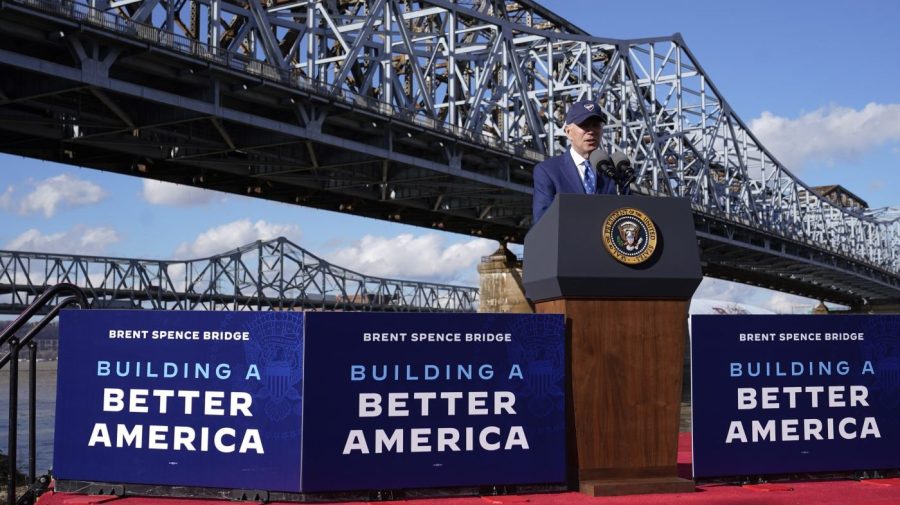When is a government rule more about political theater than about helping Americans? When bureaucrats keep needing to write new exceptions to prevent too much sand from clogging the gears of the economy.
That describes the Build America, Buy America Act (BABA), the domestic sourcing provision of the $1.2 trillion Infrastructure Investment and Jobs Act (IIJA), signed into law by President Biden in November 2021. BABA guidelines require IIJA-funded projects to purchase materials from within the U.S.
“Buy American” isn’t a new idea — federal infrastructure projects have long included domestic sourcing requirements. But BABA extended those rules to metal, composite building materials, lumber, fiber-optic cable and even drywall. Manufactured goods used in projects must also have at least 55 percent U.S.-made materials.
The government understood how onerous these restrictions were. And we know that because, less than a year after the IIJA’s passage, the Department of Commerce instituted a waiver for the BABA rules. The waiver took effect in fall 2022, because, in Commerce’s own words, the requirements impose “costly modifications to budgets, plans, and specifications.”
The costs couldn’t have come as a surprise. BABA is simply the latest iteration of a long tradition of “Buy American” provisions, including the Buy American Act of 1933, the Military Cargo Preference Act of 1904, and the Berry Amendment of 1941. A lengthy bibliography of research documents the costs of these rules. And BABA is among the worst, extending into categories such as buildings and electrical transmission facilities and covering a much wider range of materials than previous laws.
The practical effect will be identical to BABA’s predecessors: Fewer IIJA projects will be completed, and the ones that are completed will cost taxpayers more than they should. That’s because, while domestic sourcing rules may make for good applause lines, they are terrible policy.
A Peterson Institute study estimated that these requirements are equivalent to a 25 percent tariff and a 5 to 10 percent increase in prices to consumers. They don’t even create new jobs, as supporters claim. To the contrary, the same study notes research findings from 2017 that eliminating all Buy American provisions at the time would have generated 300,000 net additional jobs over three years.
Cost isn’t the only issue. Domestic sourcing requirements add delays and complexity. Agencies and vendors don’t just have to find domestic materials — a challenge of its own in an era of supply disruptions — but they also must rigorously document the sourcing of materials. The government itself has documented the delays the requirement creates. Per the Congressional Research Service: “In a survey of people in the public transportation industry in the mid-1990s, Buy America was mentioned by respondents as the cause of project delay more often than any other reason.”
These types of rules were costly in the 20th century, but they are self-evidently backwards in the 21st. Supply chains are global and complex. A widget today contains components that cross oceans; the laptop or phone you’re reading this on is made up of pieces from many countries. When the government insists that 55 percent of materials be domestically sourced, they are often asking companies to do the impossible, forcing regulations that didn’t work well decades ago on an economy even less suited for them now.
Which leaves us where we stand today, with infrastructure projects stalled, and with those underway likely costing more and taking longer to finish. The BABA restrictions on IIJA funding will ensure that broadband buildout and the push for greener power take longer and cost more than they should, and that decaying roads and bridges remain safety hazards. No evidence supports these regulations, but they have become a routine part of our infrastructure efforts regardless.
What is to be done? In the short-term, the Commerce Department can do the sensible thing and renew its waivers while other agencies issue new ones. In the future, however, legislators ought to fairly examine the gap between their best intentions and a policy’s actual outcomes. “Buy American” makes for a great bumper sticker, but great bumper stickers rarely make for good policy.
Scott Wallsten is President and Senior Fellow at the Technology Policy Institute and a senior fellow at the Georgetown Center for Business and Public Policy.
